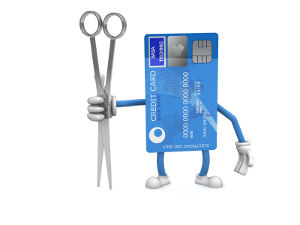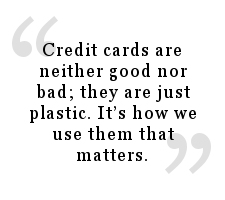Is Your First Credit Card Getting Out of Control? Here’s How to Get Yourself Back on Track
Q: I’m a first year university student and during campus orientation I signed up for my first credit card. I’ve activated it and have been using it to pay for various things. While my card isn’t maxed, I’m feeling a little nervous about how I’m going to pay my bill. Can you give me some advice before I become maxed out like my friends?

A: Starting your post-secondary life is an exciting time. You will learn many lessons and hopefully one of them is how to use credit wisely. Credit cards are neither good nor bad; they are just plastic. It’s how we use them that matters.
To get a good handle on where you’re at, start by putting your credit card away. You don’t need to keep adding additional charges while you’re trying to pay it off.
The next thing you need to do is get a printed copy of your statement. Once you have your statement, use highlighters to categorize your charges. Books, meals, snacks, coffee, entertainment, transportation and clothing are a few of the categories you might want to start with. By tracking your expenses in categories, you will be able to tell exactly what you used your credit card for.

Once you know what you’re spending your money on, make some decisions about wants versus needs. Credit cards are an expensive way to finance a lifestyle, so clarify why you got a credit card in the first place. Was it for emergencies, school expenses or social spending? Did you use your new credit card for what it was intended or did you give in to temptation spending?
It’s always easier to spend the money than to pay it back, but if you deal with what you owe sooner than later, it is that much easier. To repay what you borrowed, you need to create a plan that accounts for the debt payments as well as your current, ongoing expenses.
Outline your spending plan or budget and if you have a shortfall, look for ways to increase your income, decrease expenses or do a little of both. A part-time job on campus might give you the extra cash you need, carpool with a friend to save on transportation costs or scale back on eating out by packing your lunch or snacks at least a few days each week. Look to make several small changes that add up to what you need.
“Plastic” surgery might seem like a pretty radical step, but financial stress is the last thing you need when you are in school.



0 Comments